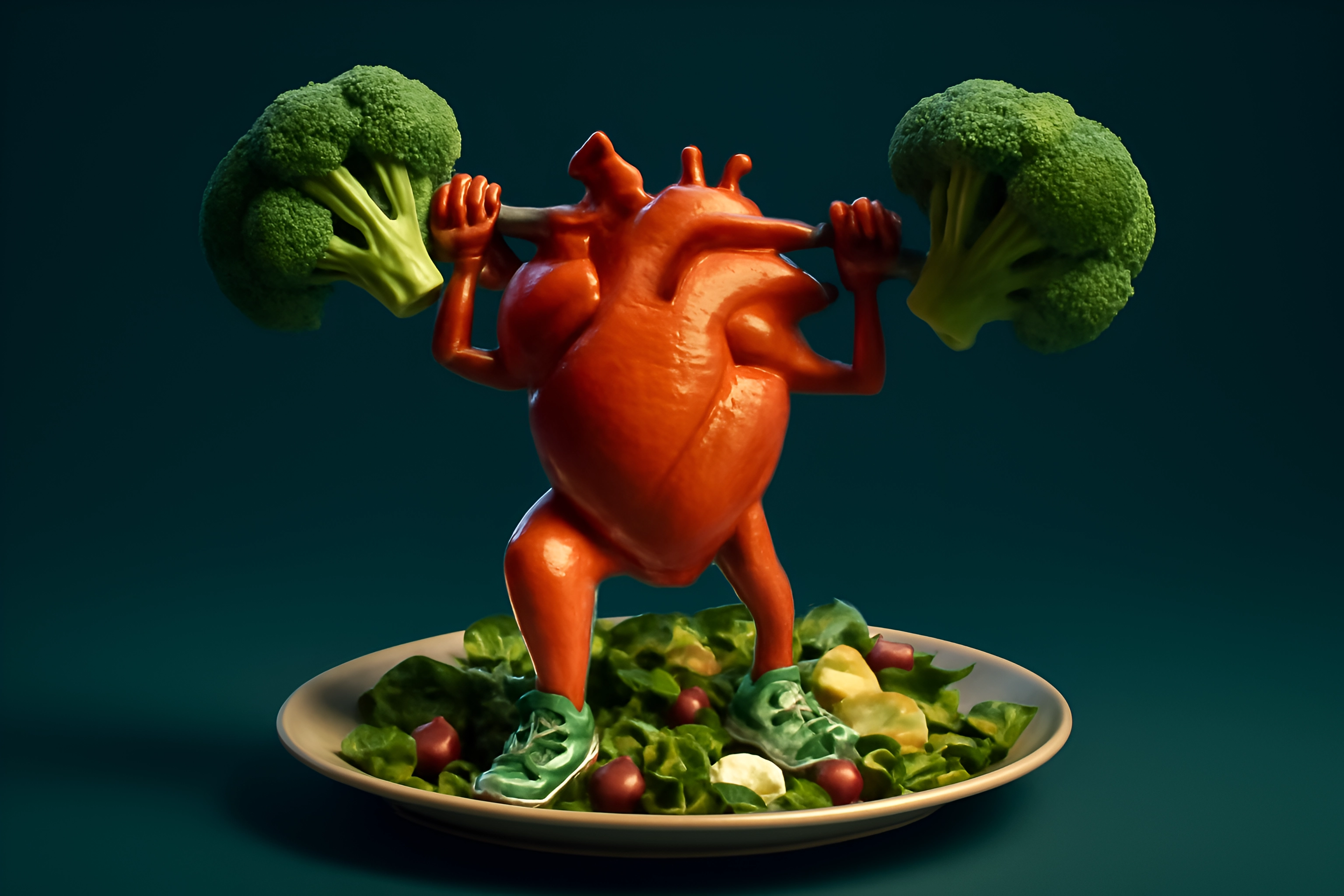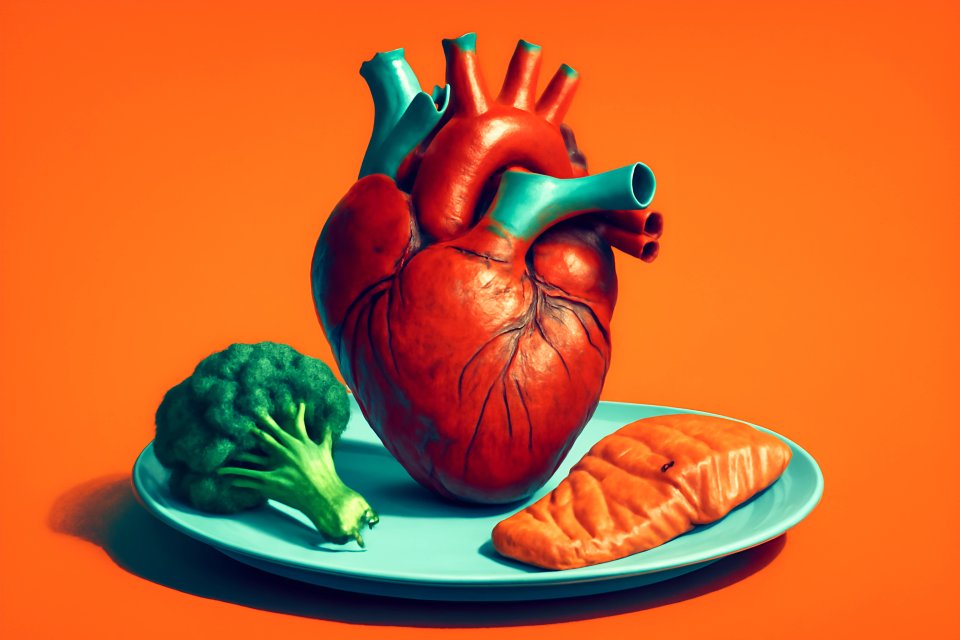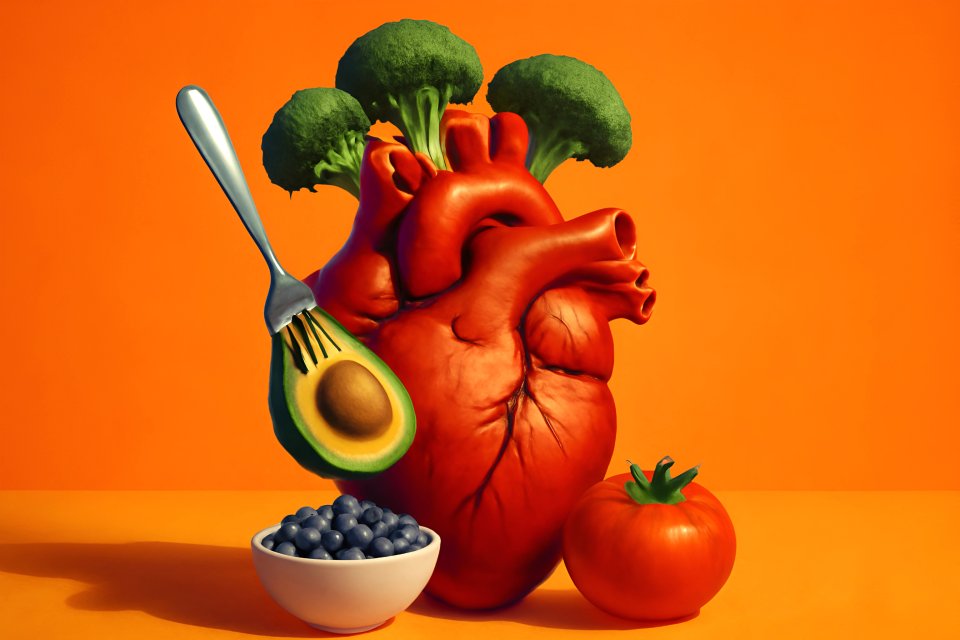
Introduction: Nourish Your Heart Without Emptying Your Wallet
Does the word "superfood" make your wallet clench? You see the magazine covers, the health gurus on TV, all pushing exotic berries from a faraway mountain or powders that cost more than a week's worth of groceries. It’s a frustrating feeling, especially when you’re trying to manage your heart health on a fixed income, feeling like the best choices are simply out of reach.
But what if I told you that was a lie? What if the most powerful, heart-protecting foods on the planet were hiding in plain sight on your regular grocery store shelves, waiting for you for just pennies on the dollar? This isn't about chasing expensive trends; it's about reclaiming your health with smart, simple choices. We're going to show you exactly how to build a vibrant, delicious, and powerful diet with budget-friendly superfoods and heart-smart meal planning.
In this guide, we’ll shatter the myth of the pricey superfood and reveal the everyday nutritional champions that truly matter. We'll walk you through the top 10 most affordable powerhouses for your heart, share savvy shopping strategies that slash your grocery bill, and give you simple, mouth-watering recipes you can make tonight. Get ready to feel empowered, energized, and in complete control of your health and your budget.
What Are "Superfoods," Really? Unpacking the Hype for Seniors
Demystifying the "Superfood" Label
Let's get one thing straight: superfood is a marketing term, not a scientific one. It was designed to sell you something, often at a premium price. The real secret is that a food's power doesn't come from an exotic origin story, but from its nutrient density—how many vitamins, minerals, and protective compounds are packed into each bite.
Forget the goji berries and acai bowls for a moment. Think about a humble bowl of oatmeal, a hearty lentil soup, or a handful of deep-green spinach. These are the true superfoods, the unsung heroes of the grocery aisle that deliver incredible health benefits without the sticker shock. By shifting your focus from hype to nutritional value, you unlock a world of affordable foods that can profoundly impact your well-being.
Why Heart-Smart Nutrition is Crucial After 50
As we age, our bodies change, and so do our nutritional needs. It's a fact of life. According to the American Heart Association, the changing nutritional needs of older adults mean they often require more protein to maintain muscle mass and more key nutrients like vitamin B12 and calcium, even as their overall caloric needs may decrease. This creates a "nutrient squeeze" where every calorie truly has to count.
This is where a heart-smart diet becomes your most powerful tool for survival and vitality. Making strategic food choices helps you take direct control over your health, actively managing blood pressure, lowering harmful cholesterol, and reducing the inflammation that can lead to chronic disease. A diet rich in plant-based proteins and fiber can lower LDL cholesterol by as much as 15%, proving that the right foods are potent medicine. It’s not just about living longer; it’s about living better, with the energy and strength to enjoy every single day.
The Top 10 Affordable Superfoods for Seniors
You don't need a specialty health food store to find these nutritional champions. Here are our top picks for affordable superfoods that support your heart.
Oats
Forget sugary cereals. Oats are a true breakfast of champions, packed with a special soluble fiber called beta-glucan. This powerful substance works like a sponge in your digestive system, soaking up bad cholesterol so your body can get rid of it. Buying rolled oats in a large canister instead of individual, sweetened packets is a simple switch that saves you money and cuts out unnecessary sugar.
Lentils & Beans
These are the undisputed kings of budget-friendly protein. A single serving of lentils or beans is loaded with fiber, protein, and potassium, a trifecta that helps keep your blood pressure in a healthy range. According to the American Heart Association, incorporating more plant-based proteins is a key strategy for heart health. To get the most bang for your buck, buy them dried and soak them yourself; for convenience, low-sodium canned versions are a fantastic alternative.
Frozen Berries
Think you can't afford berries year-round? Think again. Frozen berries are flash-frozen at their peak of ripeness, locking in all their powerful antioxidants, called anthocyanins, which are fantastic for fighting inflammation. They are significantly cheaper than fresh berries, especially out of season, and are perfect for smoothies, oatmeal, or mixing into yogurt.
Leafy Greens (Spinach & Kale)
Dark leafy greens like spinach and kale are nutritional gold. They are brimming with vitamins, minerals, and nitrates, which your body converts into nitric oxide—a compound that helps relax your blood vessels and improve blood flow. Buying greens in whole bunches is often cheaper than pre-washed bags, and frozen spinach is an incredibly cost-effective option for adding to soups, stews, and egg dishes.
Sweet Potatoes
This vibrant root vegetable is a cheap and delicious way to protect your heart. Sweet potatoes are an excellent source of potassium, which helps balance sodium levels and manage blood pressure, and they're packed with fiber for digestive and heart health. They also have a long shelf life, meaning less food waste and more savings for you.
Canned Salmon or Tuna (in water)
Fresh fish can be pricey, but you don't have to miss out on those incredible omega-3 fatty acids. Canned salmon and tuna are fantastic, affordable sources of these heart-healthy fats, which are proven to reduce inflammation and support cardiovascular function. Just be sure to choose varieties packed in water, not oil, and look for low-sodium options to keep your heart happy.
Garlic
A tiny clove of garlic packs a mighty punch, both in flavor and in health benefits. It contains natural compounds that may help lower both blood pressure and cholesterol levels. A whole bulb of garlic is incredibly inexpensive and adds a huge burst of flavor to your meals, allowing you to cut back on salt—a major win for your heart.
Nuts & Seeds (in moderation)
A small handful of nuts or seeds provides healthy fats, fiber, and plant sterols that can help manage cholesterol. While some nuts can be expensive, you can find great value by buying from the bulk bins, which allows you to get just the amount you need. Walnuts and sunflower seeds are often more affordable choices that are still loaded with heart-protective nutrients.
Olive Oil
A cornerstone of the famously heart-healthy Mediterranean diet, extra virgin olive oil is rich in monounsaturated fats that fight inflammation and protect your heart. You don't need the fanciest artisanal bottle; buying a larger, store-brand container of extra virgin olive oil provides the best value for everyday cooking. Use it for sautéing vegetables or making your own salad dressings.
Plain Yogurt
Ditch the sugary, fruit-on-the-bottom cups. A large tub of plain yogurt is a much more affordable and healthier choice, providing a great source of calcium and potassium. The probiotics also support a healthy gut, which is increasingly linked to overall wellness and heart health. You can easily add your own flavor with a swirl of honey or a handful of those frozen berries.
Your Guide to Budget-Friendly, Heart-Smart Meal Planning
Smart Shopping Strategies: Senior Meal Planning Tips
The secret to eating well on a budget begins long before you start cooking—it starts at the grocery store. The single most powerful thing you can do is plan your meals for the week and go to the store with a list. This simple act prevents impulse buys that wreck your budget and your health goals. Build your menu around what's on sale, especially when it comes to produce and lean proteins.
Don't be afraid to lean on the freezer and canned goods aisles. As we've discussed, frozen fruits and vegetables and canned fish and beans are just as nutritious as their fresh counterparts and often much more affordable. Batch cooking is another game-changer; making a large pot of lentil soup or chili on Sunday can provide you with healthy, ready-to-go lunches for days. And remember, store brands are often made in the same factories as name brands, offering identical quality for a fraction of the price. For a deeper dive, check out these age-defying nutrition and meal planning tips to structure your entire week.
Building a Heart-Healthy Pantry on a Budget
A well-stocked pantry is your secret weapon for staying on track. When you have healthy staples on hand, you're far less likely to opt for expensive and unhealthy takeout. Your goal is to create a foundation from which you can build dozens of simple, heart-smart meals.
Focus on stocking up on these essentials:
- Whole Grains: Rolled oats, brown rice, quinoa, whole-wheat pasta.
- Legumes: Dried or canned (low-sodium) lentils, chickpeas, and black beans.
- Canned Goods: Canned salmon or tuna (in water), canned tomatoes, low-sodium vegetable or chicken broth.
- Healthy Fats: A large bottle of extra virgin olive oil, nuts, and seeds.
- Flavor Boosters: Garlic, onions, dried herbs, and spices.
Simple & Savory: Heart-Healthy Recipes on a Budget
Breakfast: Hearty Berry & Walnut Oatmeal
Start your day with a breakfast that fuels your body and protects your heart. This simple oatmeal is packed with cholesterol-lowering fiber from the oats and inflammation-fighting antioxidants from the berries. In a small pot, combine 1/2 cup of rolled oats with 1 cup of water or milk and a pinch of cinnamon. Bring to a simmer and cook for 5-7 minutes, stirring occasionally. In the last two minutes, stir in a 1/2 cup of frozen berries and a tablespoon of chopped walnuts. The berries will thaw and create a beautiful, natural sweetness, while the walnuts add a satisfying crunch and a dose of healthy fats.
Lunch: 20-Minute Lemony Lentil Soup
This soup is the definition of cheap and cheerful, and it's so easy to make a big batch to enjoy throughout the week. In a pot, sauté a chopped carrot, a stalk of celery, and a clove of minced garlic in a teaspoon of olive oil until softened. Add 1 cup of rinsed red lentils, 4 cups of low-sodium vegetable broth, and a can of diced tomatoes. Bring to a boil, then reduce the heat and simmer for about 15-20 minutes, or until the lentils are tender. Just before serving, stir in the juice of half a lemon to brighten up all the flavors. This soup is incredibly satisfying and costs less than a dollar per serving.
Dinner: Baked Salmon Patties with Roasted Sweet Potatoes & Spinach
This meal feels elegant and special, but it’s made entirely from affordable pantry staples. To make the salmon patties, drain a can of salmon and mix it in a bowl with 1/4 cup of oats (which act as a healthy binder), one egg, and some minced garlic or onion. Form the mixture into patties and bake at 400°F for about 20 minutes, flipping halfway through. While they bake, toss some sweet potato wedges with a drizzle of olive oil and roast them on the same pan. In the last few minutes, quickly sauté a few large handfuls of spinach with garlic. This dinner is a powerhouse of omega-3s, fiber, and vitamins. For even more inspiration, explore these nutrient-dense dinner ideas for heart health.
Putting It All Together: A Sample One-Day Heart-Smart Meal Plan
Seeing how it all fits together can make it feel much more achievable. Here is a sample day that uses the delicious, affordable recipes we just covered to create a perfectly balanced, heart-protective menu.
| Meal | Menu Item |
|---|---|
| Breakfast | Hearty Berry & Walnut Oatmeal |
| Lunch | Leftover Lemony Lentil Soup |
| Dinner | Baked Salmon Patties with Roasted Sweet Potatoes & Spinach |
| Snack | An apple with a tablespoon of peanut butter |
This simple plan shows how you can enjoy delicious, varied meals without spending all day in the kitchen or all your money at the store. By cooking once and eating twice with the leftover soup, you save time and ensure you have a healthy option ready to go. This is the essence of smart, sustainable, heart-healthy living.
Conclusion: Your Health is Your Greatest Wealth
Let's be clear: taking control of your heart health is not about buying expensive, trendy products. It's about making smart, consistent choices with the affordable, powerful foods that have been nourishing people for generations. It’s about understanding that a bag of lentils holds more power than a bottle of exotic juice.
Investing in your health is the most important decision you can make, and it absolutely does not have to be a financial burden. With a little planning and a pantry stocked with these everyday champions, you can create delicious meals that nourish your body, protect your heart, and support your vitality for years to come. You have the power to build a healthier future, one delicious, budget-friendly meal at a time. For more ideas, you can always explore our complete guide to heart-healthy superfoods and recipes for seniors.
What are your go-to affordable superfoods for seniors? Share your favorite tips and heart-healthy recipes on a budget in the comments below! Let's build a community of support and share our wisdom.












